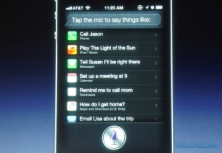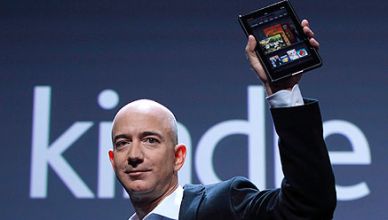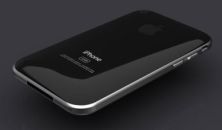At today's press event, Apple unveiled "Siri", an artificial intelligence personal assistant who will be included with the new iPhone 4S.
Read More »Emerging Tech
Apple Unveils the New iPhone 4S (Not the iPhone 5)
Well, it's the announcement that everyone has been waiting for -- Apple's new iPhone. However, it's not the iPhone 5, as many people were expecting. Instead, Apple has released an upgraded version of the iPhone 4, which will be called the "iPhone 4S".
Read More »Amazon Announces New Kindle E-Readers, Will Start at $79
Amazon's press event wasn't just about the Kindle Fire. Also unveiled were a new generation of Kindle e-readers, as well as the "Kindle Touch".
Read More »Kindle Fire Announced, Will Sell for $199
The Kindle Fire has been officially announced -- it will be released on November 15th, and will be priced at just $199. While most of the rumors about Amazon's tablet were true, some were proven to be completely ludicrous.
Read More »Apple Board Member Al Gore Slips, Confirms “New iPhone”
Al Gore might have just committed a huge faux-pas, as far as his position on the Apple board is concerned. During a speech, Gore confirmed that "new iPhones" will be released next month.
Read More »New, Improved MacBook Pro May be Coming Later this Month
Rumors from Apple Insider have sparked speculation that an updated version of Apple's MacBook Pro might be released by the end of this month. However, some experts are still skeptical.
Read More »Rumor — iPhone 5 Pre-Orders May Start on September 19th or 26th
As the rumored release date for the iPhone 5 approaches, the tech world has been buzzing with new gossip. Now, some sources are claiming that an "inside source" has given them a potential pre-order date for the iPhone 5.
Read More »Amazing 85″ Sharp HDTV Displays in 7680×4320 Resolution
At the IFA trade show, Sharp displayed an amazing 85" prototype HDTV that displays in 8K4K resolution. That's an amazing 33 million pixels of high-def picture, around 16 times more than the 1080p HDTVs currently available on the consumer market.
Read More »Revolutionary Electric Motor is a Single Nanometer Wide
Researchers have created an electric "motor" that is essentially a tiny molecule only one nanometer wide.
Read More »Cleverbot Tricks Test Subjects Into Thinking It’s Human
At a tech festival in India, almost 60% of people believed that they were speaking to a human, when in fact they were speaking to Cleverbot.
Read More » Gearfuse Technology, Science, Culture & More
Gearfuse Technology, Science, Culture & More









